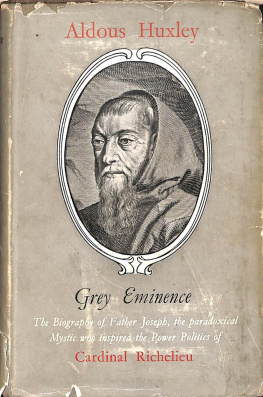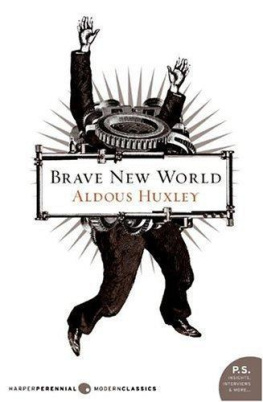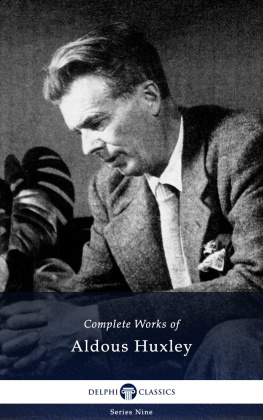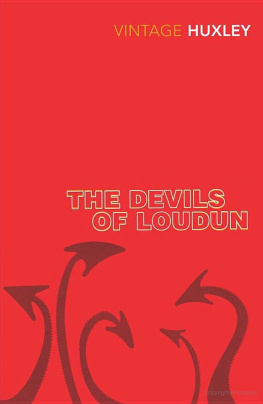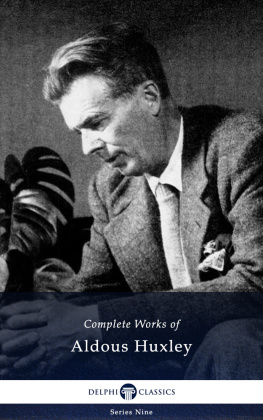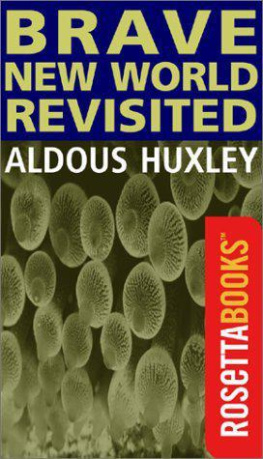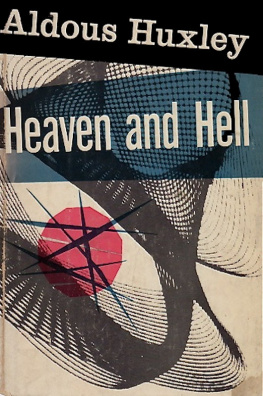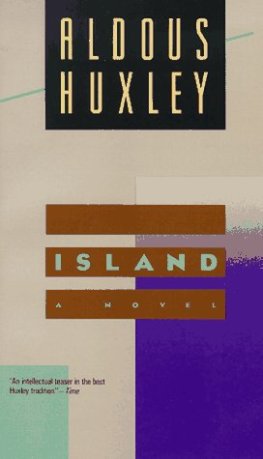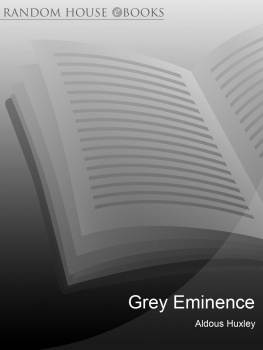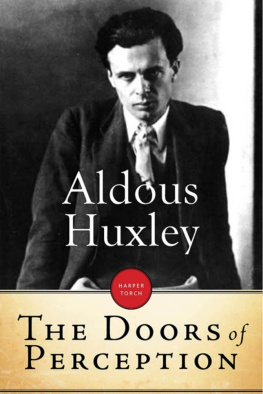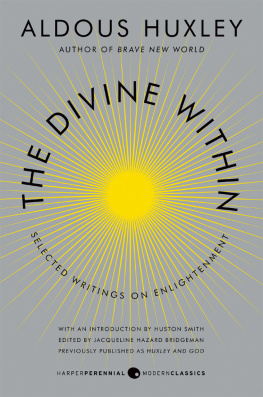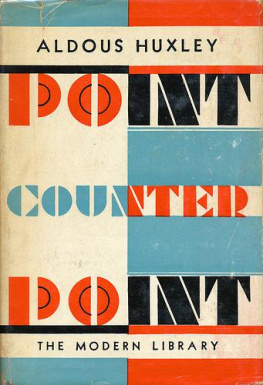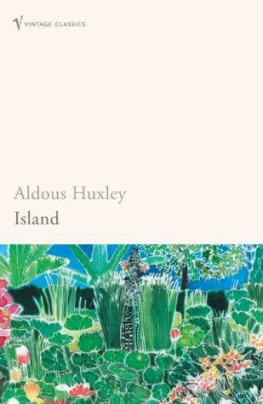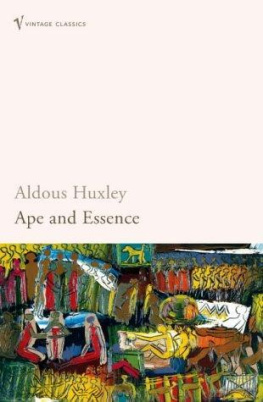The Grey Eminence By Aldous Huxley
A Study in Religion and Politics
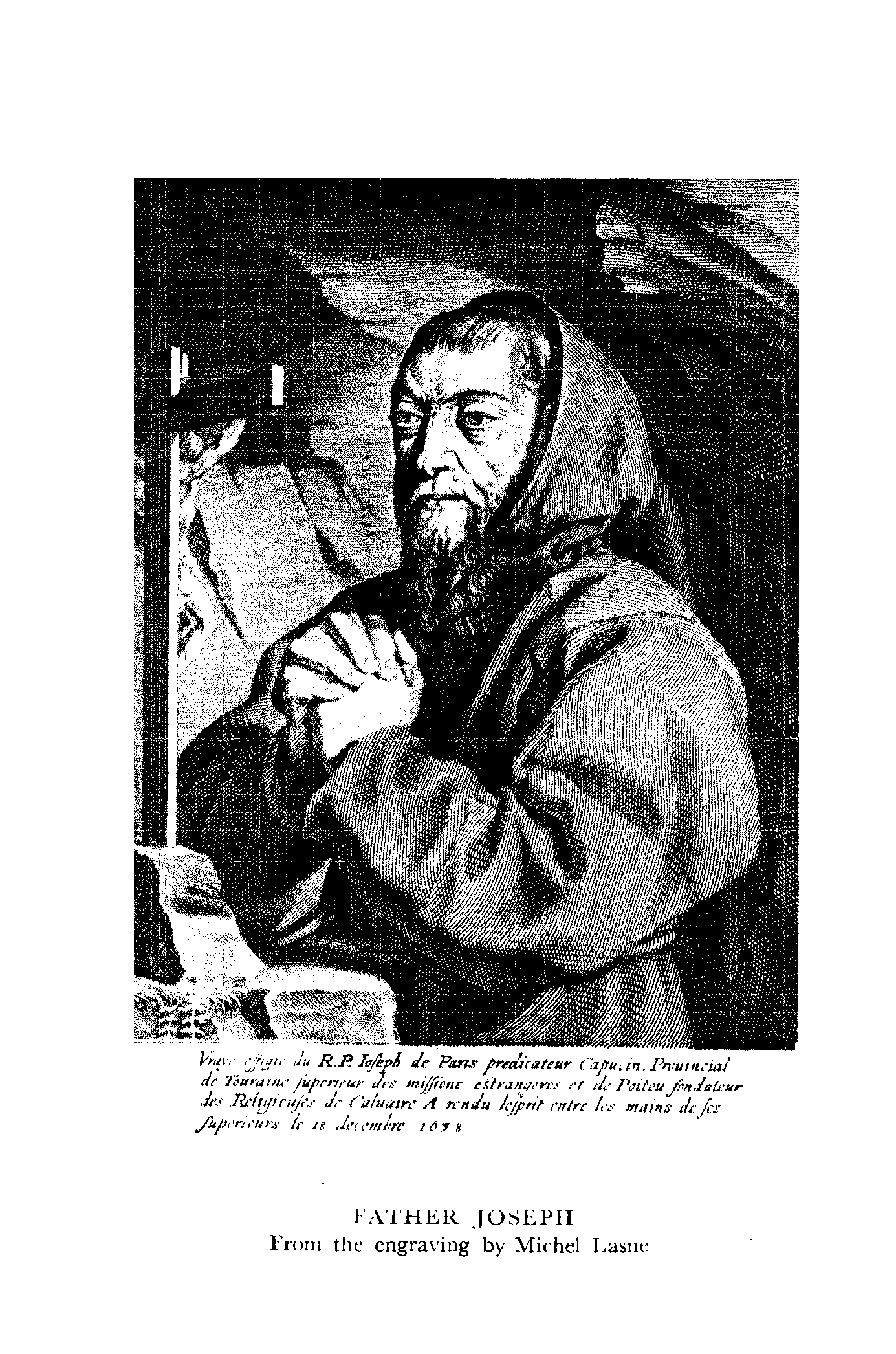
Table of Contents
CHAPTER I
On the Road to Rome
THE friar had kilted up his habit, and his bare legs were muddy to the knees. After the spring rains, the road was like a swamp. It had been like a lime-kiln, he reflected, last time he walked this way. He recalled the poem he had written on another of his journeys.
Quand au plus chaud du jour lardente canicule
Fait de lair un faurneau,
Des climats basanes mon pied franc ne recule,
Quoy que je coule en eau.
That summer of 1618, when the three of them had taken the road for Spain I Poor Brother Zeno of Guingamp had died of sunstroke at Toulouse. And a week later, near Burgos, Father Romanus had fallen sick with dysentery. In three days it was all over. He had limped into Madrid alone. And alone he was now to limp into Rome. For Father Angelus had had to be left behind with the Capuchins of Viterbo, too sick of the ague to walk another step. God bring him soon to health again !
Ni des Alpes neigeux, ni des hauts Pirennes
Le front audacieux
Na pu horner le cours de mes grandes journes,
Qui tendent jusqu aux cieux.
Cher Seigneur, si ta main m enfona la blessure
De ce perant dessein,
J ay droit de te montrer ma tendre meurtrissure
Et discouvrir mon sein.
La blessure de ce perant dessein, he repeated to himself. The phrase was particularly felicitous. Almost Latin in its pregnancy-like one of those phrases of Prudentius .
The Capuchin sighed profoundly. That wound, he reflected, was still open, and, goaded by the barb of Gods piercing design, he was still hurrying, at the rate of fifteen leagues a day, across the face of Europe. When would that design he carried into execution? When would it he granted to another Godefroy of Bouillon to storm Jerusalem? Not yet awhile, to all appearances -not till the wars were over, not till the House of Austria should he humbled and France grow strong enough to lead the nations on the new Crusade. How long, O Lord, how long?
He sighed again, and the sadness of his thoughts was reflected upon his face. It was the face of a man in middle life, weathered, gaunt with self-inflicted hardship, lined and worn with the incessant labour of the mind. Beneath the broad, intellectual forehead, the prominent blue eyes were widely opened, almost staring. The nose was powerfully aquiline. Long and unkempt, a reddish beard already grizzled, covered his cheeks and chin; but the full-lipped, resolute mouth suggested a corresponding firmness of the jaw beneath. It was the face of a strong man, a man of firm will and powerful intelligence; a man also, under the second nature imposed by a quarter-century of the religious life, of powerful passions and a fierce intensity of feeling.
Bare-footed -for he had taken off his sandals and was carrying them in his hand-he walked on through the mud, engrossed in his melancholy thoughts. Then, recollecting himself, he suddenly realized what he was doing. Who was he to criticize Gods ways? His sadness was a recrimination against Providence, a flying in the face of that divine will, to obey which was the only purpose of his life. And it must be obeyed without reluctance, whole-heartedly, joyfully. To be sad was a sin and, as such, an obstacle between his soul and God. He halted and for more than a minute stood there in the road, covering his face with his hands. His lips moved; he was praying to be forgiven.
When he walked on, it was in a contrite mood. The natural man, he was thinking, the old Adam -what a sleepless hostility to God one carried about in the depths of ones own mind and body! What a fixed resolve to sin I And what resourcefulness in the art of sinning, what skill, when one temptation had been overcome, in discovering another and more subtle evil to surrender to! There was no remedy but in perpetual vigilance.
Sentinels for ever on guard against the stratagems of the enemy Timeo Danaos et Jona Firentes. But there was also the great ally, the Divine friend, without whose aid the garrison must infallibly be destroyed. Oh, ask him in Open the gates I Sweep clean the streets and garnish the town with flowers. The sun came out from behind the clouds. The Capuchin looked up and, from its position in the sky, calculated that the time must be a little after two oclock. Rome was still three leagues away. There was no time to stop. He would have to practise his annihilation in the Essential Will as he walked. Well, it would not be the first time.
He repeated the Lords Prayer slowly and aloud; then addressed himself to the opening phase of his exercise, the act of pure intention. To do the will of God, the exterior will, the interior will, the essential will. To do it for the sake of God alone, and without reference to what he himself desired, or hoped, or might gain in this world or the next. To annihilate himself in all he thought and felt and did, so that there should be nothing left but the instrument of Gods will and a soul united by Gods grace with that divine substance, which was identical with the divine, essential will. He held his mind unwaveringly upon that resolution, while he walked a furlong or more. Then words came once again. To expose myself to God, to prepare my soul for his coming, watchfully and with reverence. To tum myself, naked of every other design, every other feeling and thought and memory, towards such radiance of divine love and knowledge as God may vouchsafe to give. And even if he should vouchsafe to give me nothing, even if it should be his will to leave me without light or consolation, to turn towards him none the less with thankfulness and in perfect faith. Qui adlit Uret Deo, unus spiritus est . To adhere, he repeated, to adhere from the act of pure intention he passed to that of adoration and humility. God for his own sake and not with any thought of myself. For what was this self of his? A nothing-but an active nothing, capable of sin and therefore capable of cutting itself off from the All. An active nothing that had to be annihilated into passive nothingness, if Gods will was to be done.
He had worked hard to annihilate that active nothing, and God in his great mercy had granted him many favours strength to control at least the grosser impulses of nature, sensible consolations, visions and revelations, access at moments to the outskirts of the divine presence. But for all that, his active nothingness still persisted; he was still capable of negligence and imperfection, even of such downright wickedness as complacency in the recollection of his own work and Gods past favours. The old Adam knew how to make use even of the souls efforts to annihilate the Old Adam, and by taking pride in those efforts, was able to undo their results and strengthen his own resistance to God. Nay, the very graces of God could be turned, unless the soul was unremittingly on guard, into a stumbling block and a source of grievous sins and imperfection.
The Son of God, the incarnate source of all grace-how had he proclaimed his divinity? By humility, by adoration and love of God. Love, love, love, the Capuchin repeated, humility and love, humility of the nothing before the all, love and adoration of the all by the nothing, love.
Horny like a savages from their incessant marching and counter-marching across the face of Europe, his bare feet splashed through the puddles, stepped unflinching on the stones, treading the beat of the reiterated words. Love, Christs love, love . It was said that the Cardinal Nephew had been offended by the behaviour of His Catholic Majestys ambassador. Christs love, Christs love . These Spaniards were for ever undoing themselves by their stupid arrogance. Love, love, love Well, so much the better for France. All at once he perceived that the words he was still repeating to himself had become separated from his thoughts, that the flame he had been cherishing was extinguished.
Next page
